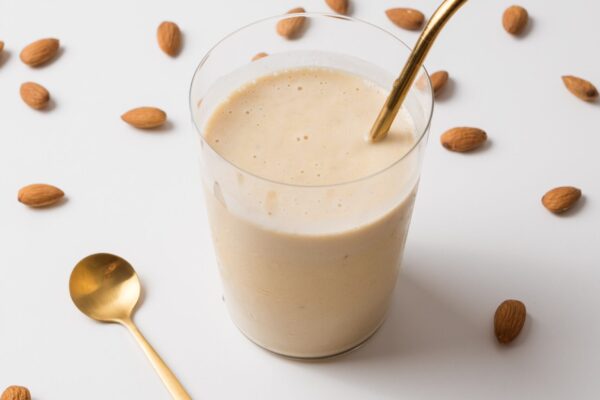
Are you a tea lover who relies on a cup of tea to kickstart your day? If so, you may have wondered which type of tea contains the most caffeine. With numerous tea varieties available, it’s important to know the differences in caffeine content to make the most informed choice for your caffeine needs.
Tea is one of the most widely consumed beverages in the world and comes in various types, each with its own unique characteristics. Alongside taste and health benefits, the caffeine content in tea plays a significant role for many individuals. Understanding which tea has the highest caffeine content can help you select the best option for a refreshing and energizing boost.
Whether you’re seeking a caffeine jolt to fuel your mornings or seeking to limit your caffeine intake, it’s essential to be aware of which type of tea packs the most punch. In this article, we will explore the different types of tea and discover which one contains the highest amount of caffeine, providing you with the knowledge to make an informed decision when selecting your next cup of tea.
What Type of Tea has the most Caffeine?
Tea is one of the most popular beverages enjoyed around the world. It comes from the leaves of the Camellia sinensis plant and offers a range of flavors and health benefits. One factor that differentiates different types of tea is their caffeine content. In this article, we will explore which tea has the most caffeine and also highlight some top healthy teas that are caffeine-free.
Most Caffeinated Teas:
When it comes to caffeine content, black tea takes the lead. It contains the highest amount of caffeine, ranging between 64 and 112 milligrams (mg) per 8-fluid ounce (fl oz) serving. Oolong tea, which is partially oxidized, also contains a significant amount of caffeine, ranging between 29 and 53 mg per 8-fl oz serving. On the other hand, green tea and white tea contain the least amount of caffeine, except for decaffeinated teas.
Black Tea:
Black tea is known for its robust flavor and high caffeine content. Besides providing a boost in mental alertness, black tea has been associated with a lower risk of heart attack and may help lower blood pressure. Research has also suggested that regular black tea consumption may reduce the risk of ovarian cancer.
Oolong Tea:
Oolong tea falls in between black and green teas in terms of oxidation. It contains a moderate amount of caffeine and offers various health benefits. Oolong tea has been linked to weight loss and may help lower cholesterol levels, reducing the risk of heart disease.
Green Tea:
Green tea is renowned for its health-promoting properties. It contains less caffeine than black and oolong teas, ranging between 24 and 39 mg per 8-fl oz serving. Green tea has been found to have anti-carcinogenic properties, potentially protecting against skin cancer. It also shows promise in reducing inflammation and improving cognitive ability.
White Tea:
White tea is made from young tea leaves that undergo minimal oxidation. It contains a similar amount of caffeine to green tea, ranging between 32 and 37 mg per 8-fl oz serving. White tea has been associated with various health benefits, including heart health, protection against harmful UV rays, reduced inflammation, and potential weight loss.
Decaffeinated Teas:
For those looking to avoid caffeine altogether, decaffeinated teas are available. These teas typically contain less than 12 mg of caffeine per 8-fl oz serving. Additionally, many herbal teas are naturally caffeine-free and offer a range of health benefits.
Top Healthy Teas with No Caffeine:
Some notable caffeine-free teas with health benefits include rooibos tea, hibiscus tea, chamomile tea, and turmeric tea. Rooibos tea has been studied for its potential liver-protecting effects and blood pressure-lowering properties. Hibiscus tea has been associated with improved cardiovascular health. Chamomile tea is known for its calming effects and may help with insomnia, lower cholesterol, and provide antioxidant protection. Turmeric tea has gained popularity for its antioxidant, anti-inflammatory, antiviral, and antibacterial properties.
Caffeine Risks:
While tea offers various health benefits, it’s essential to be mindful of caffeine consumption. Consuming excessive amounts of caffeine can lead to health problems such as insomnia, headaches, anxiety, increased heart rate, and dehydration. Certain individuals, including pregnant or breastfeeding women, those with sleep disorders or high blood pressure, and those taking specific medications, should limit their caffeine intake.
Conclusion
When it comes to caffeine content, black tea contains the most caffeine, followed by oolong tea. Green tea and white tea have lower caffeine content, and decaffeinated teas and herbal teas are naturally caffeine-free. Each type of tea offers its own set of health benefits, from cardiovascular health to weight loss and antioxidant protection. For those looking to avoid caffeine, decaffeinated versions of popular teas are available, and herbal teas like rooibos, hibiscus, chamomile, and turmeric can provide various health benefits without the caffeine. So, whether you’re looking for a boost in energy or a caffeine-free option, there’s a tea for everyone.
Premium Guides for Related Products:
- How Long Does Cold Brew Last?
-
Best Single Cup Coffee Maker with Grinder – 2021 Iconic Brands Loved by Consumers
-
Best Espresso Machine Under 500 | The Ultimate Buying Guide
-
Best Home Espresso Machine Under 200 | A Conclusive Guide
-
Best Beginner Espresso Machine in 2021 (Expert Barista Opinion)
-
The 4 Best Espresso Machine for Beginners 2021 | Reviews
